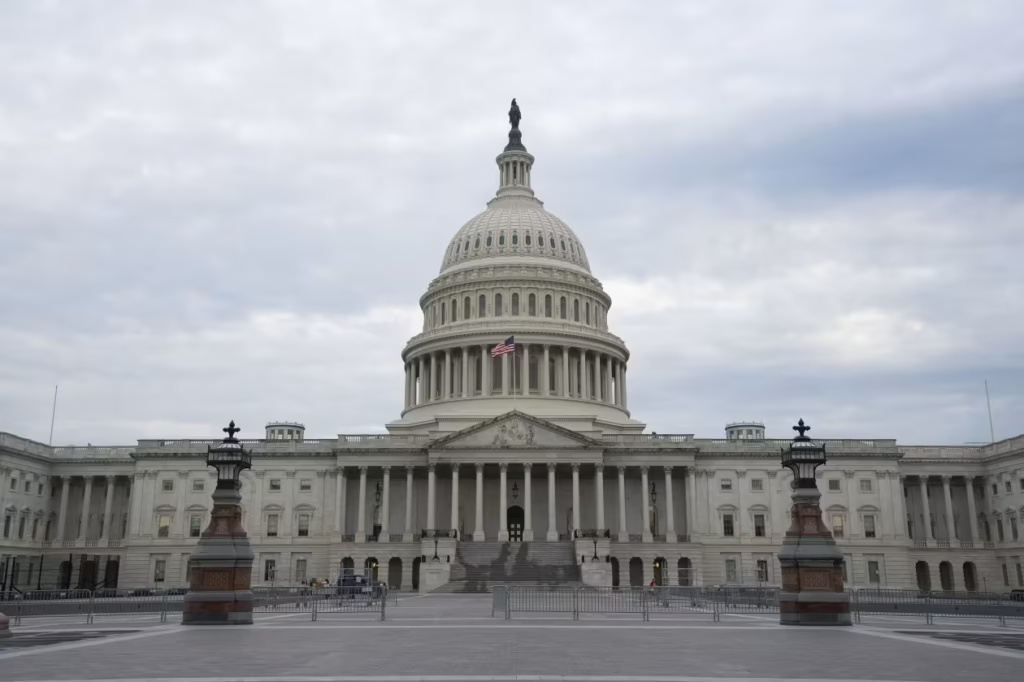Senate Republicans have released a comprehensive plan to restructure the Medicaid program, but policy analysts caution that the changes might cause hospital systems to suffer much more and lose even more coverage than the House of Representatives’ aggressive proposal last month.
As part of the party’s larger effort to pass new tax and spending legislation supported by President Donald Trump, the Senate Finance Committee released the text, which reveals that the legislation intends to cut Medicaid spending by up to $1 trillion over ten years, or $200 billion more than the House version.
Numerous healthcare researchers and providers were taken aback by the draft’s array of cost-cutting measures, which included more stringent limitations on so-called provider taxes, which have improved the state Medicaid programs’ financial stability but are criticized for shifting an excessive amount of costs to the federal government.
“The text included some notable adverse surprises on Medicaid, posing problems for hospitals if maintained,” stated Tobin Marcus, a Wolfe Research policy analyst, in a client note. “These are significant negative surprises,” he said, adding that even the more moderate Medicaid changes in the House version of the bill have been met with vociferous skepticism from many senators.
Red tape, cost sharing, and work requirements
Numerous improvements from the House version, such as a nationwide work requirement for childless persons between the ages of 19 and 64, are retained in the Senate draft. By 2029, Medicaid participants in that category will have to demonstrate they are working or engaging in other permitted activities for at least 80 hours per month, failing which they risk losing their coverage.
Some policy experts and Democrats contend that the clause is more about restricting enrollment than it is about promoting employment.
Former Office of Management and Budget director Bobby Kogan, who served under President Joe Biden, referred to the bill as a “work-reporting requirement” instead of a “work requirement.”
In May, Kogan told MarketWatch, “They’ve put in place so much red tape that enrolling becomes impossible for many.” “Most people getting kicked off are actually working.”
Stricter enforcement of state funding policies
The Senate text’s attack on so-called provider taxes is its most unexpected clause.
Provider taxes, which are levied by states on hospitals and other providers, are frequently used to raise money that, when used, forces the federal government to increase its Medicaid program spending.
Critics contend that these programs are really a means of forcing the federal government to pay a larger share of Medicaid costs because providers make more money from federal payments than they do from provider taxes.
The House version of the measure grandfathers in current arrangements while outlawing future provider taxes. Under the Senate version, states would no longer be permitted to use provider taxes to fund more than 3.5% of spending beginning in 2031, as opposed to the current 6% cap.
States and suppliers under attack
Due to the stricter provider-tax limitations and their increased reliance on supplemental payments to pay for care for low-income citizens, states that expanded Medicaid under the Affordable Care Act may be particularly adversely hit.
If the Senate draft is signed into law, hospitals that serve low-income or rural populations—many of which are in states that are controlled by the Republican Party—may face severe financial difficulties.
Spencer Perlman, director of healthcare policy research at Veda Partners, wrote in a client note on Tuesday, “We expect significant pushback to the draft from Senators concerned about the impact of the Medicaid cuts on state budgets and rural hospitals, which likely will be buttressed by vocal opposition from state governors and the hospital industry.”
If this proposal is passed into law, publicly traded corporations that depend significantly on Medicaid payments may also be impacted.
Hospitals run by HCA Healthcare (HCA) and Ardent Health (ARDT) in states with sizable Medicaid populations frequently depend on the kinds of payments that the Senate measure is aiming to target.
Changes in Medicaid financing could jeopardize the contracts that managed-care insurers, such as Centene (CNC), Elevance Health (ELV), UnitedHealth Group (UNH), and Molina Healthcare (MOH), have with states to provide Medicaid services.
Anticipate backlash from the GOP
According to Perlman, investors can anticipate significant modifications to the wording as stakeholders voice their concerns in the next few days, and the Senate text should be treated more like a “discussion draft.”
It is anticipated that a number of Senate Republicans, including Jim Justice of West Virginia, Susan Collins of Maine, and Josh Hawley of Missouri, who represent rural states with substantial Medicaid enrollment, will oppose these reforms.
“We are cleareyed that conservatives and budget hawks in the Senate and the House believe the Senate’s draft still does not go far enough in cutting spending,” Perlman said. “But our belief remains that the legislative text most likely needs to address the concerns of the more moderate elements of the Senate and the House Republican Conferences to become truly viable.”





